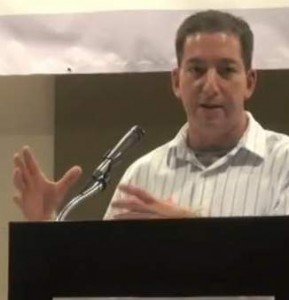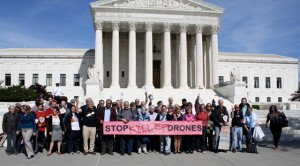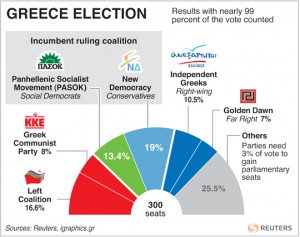CIA Sponsored Terror, Civil Liberties, Criminalizing Dissent, Habeas Corpus, Human Rights, Political Prisoner, Prison Industry, Surveillance, Torture
Podcast: Play in new window | Download
Updates:
—



Campaign To Release Russell Shoatz From Solitary Confinement Into General Population
Last year, the National Lawyers Guild called on Superintendent Louis Folino to support the Program Review Board’s recommendation to release Russell Maroon Shoatz into the general prison population at SCI Greene in Waynesburg, Pennsylvania. As many listeners may know, Russell Maroon Shoatz has been held as a political prisoner under intense lockdown spending no more than one hour a day outside of his cell for the past 21 of those years. He was locked up in 1972 for his activity as a member of the Black Liberation Army. We follow up on the international campaign to release Shoatz. The effort was launched in New York City and London and sponsored by the Scientific Soul Sessions.
Theresa Shoatz:
- He goes before the Program Review Board every 90 days, its about 68 visits since he’s been in solitary confinement. He hasn’t had any infractions in 30 years.
- If you look at that, they don’t intend to release him into general population.
- It’s a check-off, how has response been around the guards? What’s your response when you’re taken to the shower?
- Russell had become disappointed with the Program Review Committee and said “I’m not going anymore.”
- I called the Program Review Committee at SCI Greene, and said we’re getting tired of this no-movement forward.
- They said they look down on that as not cooperating with the prison. We look at as they’re not cooperating with all the rules they set forth. There is a step down program, they don’t use it as much as they should.
- When you talk about holding one person in solitary confinement, he has to be transferred, whatever his movement, to the shower, to the one hour cage, it takes two guards.
- SCI Greene released at least 20 prisoners from solitary confinement who they had no intention of releasing but because the state budget is in jeopardy now.
- They left Daddy back there. Daddy’s approaching 70 years of age, he hasn’t had an infraction in 30 years, you would’ve thought he’d be the perfect person for this step down program, and we questioned that.
- When I talk to the staff in solitary confinement, they all say he needs to be general population.
- Superintendent Folino retires in 2 years and I think he may want to slide out without releasing him into population.
- Russell escaped in 1977, in the 80s, he was in population at SCI Pittsburgh.
- He had been voted the first black president of the Lifers Association.
- Folino states that he is a leader and he is to remain in solitary. The director of the Program Review Committee actually stated that he is a leader. Obviously Theresa, you don’t know he’s a leader?
- Outside of him being a leader, he’s been able to withstand this 23 hour a day lockdown.
- I do see there are some changes with Russell. I’m talking emotionally, he’s very distraught now.
- I’m shocked that he hasn’t totally broken down.
- He gets a lot of mail. He’s busy with letter writing.
- I found there have been a lot of suicides in SCI Greene’s solitary confinement unit. Boys in their twenties hanging themselves. You don’t hear about it.
- This is torture. In 2005, there were 80 thousand people in solitary confinement.
- Juan Mendez’s report on Russell Maroon Shoatz
- My focus is on getting Maroon into population. I’m concerned with stopping the expansion of prisons being built. It costs millions of dollars to build new prisons, instead of using that for education for prisoners being released.
- Put that money back into public schools instead of building new prisons.
- We’re being assaulted by this present day prison system and our government nor our state seems to mind locking up folks or taking away money from our public school education and putting it into prisons.
- Congressional Hearing on Solitary Confinement
- hrcoalition.org / Russell Maroon Shoatz
Guest – Theresa Shoatz, a Philadelphia-based prison justice activist and the daughter of Russell Shoatz.
—–


Glenn Greenwald: Challenging the Surveillance State, Breeding Conformists
Glenn Greenwald, author and contributor (columnist and blogger) to Salon.com. During his book tour for the release of With Liberty and Justice for Some, (paper back release) he gave a impactful speech in Chicago titled Challenging the Surveillance State.
—————————————
Civil Liberties, Human Rights
Podcast: Play in new window | Download
—-


ACLU Files Lawsuit For Second Parent Adoption
The American Civil Liberties Union and the ACLU of North Carolina Legal Foundation filed a lawsuit on behalf of six same-sex couples and their children seeking the right to obtain second parent adoptions for their children. What is a second parent adoption? That’s when one partner in an unmarried couple adopts the other partner’s biological or adoptive child. This can occur in both gay and straight relationships. In December 2010, the North Carolina Supreme Court banned second parent adoptions for same-sex couples.
Attorney Chris Brook:
- We brought it on behalf of six families here in North Carolina where one parent has parental rights and a legal relationship with their child or children that they’re raising and the other parent that is playing an equivalent role in raising the child that does not have a legal relationship. . . and is treated as a stranger by the law.
- The lawsuit seeks to make uniform adoption laws in North Carolina such that they focus exclusively in what’s the best interest for the child.
- Each of the families in the lawsuit have a compelling story to tell.
- It just makes a lot of sense for the parents to provide care then for the child to be a ward of the state.
- It (the state law) does apply to unmarried couples whether they are gay or straight.
- The reason why all six of the parents involved are gay couples is because in North Carolina there is at least a remedy to unmarried straight couples. They could always get married and rectify the problems.
- This litigation is being brought on behalf of same sex couples here.
- My understanding is that 20 states including the District of Columbia permit second parent adoption.
- If there’s not a legal relationship with the second parent and the child, they may not be able to get health insurance through that parent. Similarly for worker compensation benefits.
Guest – Attorney Chris Brook, Legal Director with the ACLU of North Carolina
—-


Drone Summit: Killing and Spying by Remote Control
Earlier this year, human rights advocates, robotics technology experts, lawyers, journalists and activists gathered to bring detailed up to date information about the widespread and rapidly expanding deployment of both lethal and surveillance drones, including drone use in the United States. We hear excerpts of 2 presentations delivered at the drone conference in Washington DC titled Drone Summit: Killing and Spying by Remote Control.
Medea Benjamin , co-founder of the human rights group Global Exchange and the peace group CODEPINK. She’s also the author of the new book Drone Warfare: Killing by Remote Control. It’s a comprehensive look at the growing menace of drone warfare, with analysis of who is producing the drones, where they are being used, and who pilots the unmanned planes.
Trevor Timm, activist at the Electronic Frontier Foundation, who specializes in free speech issues and government transparency.
—-



Woody Guthrie – 100th Centennial Celebration
Woodrow Wilson Guthrie was born on July 14, 1912, in Okemah, Oklahoma. Music festivals around the country mark his centennial. Many know Woody Guthrie by the song, “This Land Is Your Land” but he recorded much more and the bulk of those songs are archived in the Library of Congress. Woody was very productive, he was a writer, a cartoonist, and a biographer. “Roots of Woody Guthrie: Celebrating Woody at 100” Down Home Radio Show
Eli Smith:
- He was born on July 14, Bastille Day. He moved to Brooklyn in 1940. He was a radical guy, a socialist. His father was a successful business man in Oklahoma during the boom times.
- He had grown up in a stable middle class family. His mother suffered from Huntington disease which killed Woody Guthrie in 1967 at the age of 55.
- Woody Guthrie did travel with migrant workers, of course there were hundreds of thousands of migrants riding the rails.
- In California, Woody started his career also as a radio personality, he was already writing and painting, he was a multi-faceted artist.
- Woody loved Will Rogers, another Oklahoman, he was a Native American and stand up comic.
- Not only was he (Woody) a writer and performer of songs, he also wrote poetry and prose and newspaper opinion pieces.
- He was also a talented painter and visual artist.
- His autobiographical novel, Bound for Glory was published in 1943.
- Woody Guthrie had 8 children over the course of his life. He did several albums of children’s songs for the Folkways Records.
- He composed This Land Is Your Land to a response to that song (God Bless America)
- Since that time its been sanitized because they took out the more communistic verses, it’s kind of a second national anthem.
- “Roots of Woody Guthrie: Celebrating Woody at 100” Down Home Radio Show
Guest – Eli Smith (host/producer) is a banjo player, writer, researcher and promoter of folk music living in New York City. Eli is a Smithsonian Folkways recording artist. Eli organizes two folk festivals annually, the Brooklyn Folk Festival in the Spring and Washington Square Park Folk Festival in the Fall.
——————————-
Civil Liberties, Criminalizing Dissent, FBI Intrusion, Habeas Corpus, Human Rights, RFID, Truth to Power
Podcast: Play in new window | Download
Updates:
- Supreme Court Decision on Immigration Discussion
—–


Supreme Court Decision on Immigration
Last week the Supreme Court delivered a split decision on Arizona’s 2010 immigration law, upholding the most controversial section of that law, “show me your papers” provision. The provision requires police officers to check the immigration status of all people stopped, detained, or arrested presumed there is “reasonable suspicion” to believe that the person is an undocumented immigrant. Reasonable suspicion can include objective factors but it also includes subjective factors, the person is nervous, doesn’t look the officer in the eyes. Despite people claiming the Supreme Court decision was a victory for immigration advocates, it wasn’t at all.
Attorney Cathy Albisa:
- My reaction is that we’re not having the right conversation.
- There was an involved technical decision regarding the federal government and the state government.
- The one thing that was lost except for a couple of lines, was the people at the heart of this problem.
- The people who’ve been displaced from their home countries through the global economy, and stripped of legal person hood, and now living in a constant state of fear. It’s a reflection of what a degraded state of politics we’re in.
- That if you pass a law that shocks the conscience, the fact that you got rid of some of it or most of it becomes a victory.
- The claims of victory are in themselves very troubling signs.
- Our expectations have become so low, that we consider it a step forward.
- At the heart of the law is an intent, to treat this group of people differently from other groups of people in the state of Arizona.
- What does that kind of racism do, what does that kind of living under constant threat do to a community, to a person and to a set of human rights, that we all should be defending?
- Immigration has always been a divide and conquer from the xenophobic side of the isle.
- If we assessed it that we live in a global economy, that rights cross borders. If people and capital can cross borders, protection can cross borders.
- Why are they here? If you look at the reason they cross borders, it’s economic.
- They’re displaced for economic reasons. We don’t look at the grinding poverty that displaces people as a rights question.
- The ones that want to hold are organizing and demanding their rights.
- www.nesri.org
- There are sheriffs across the country that object to these policies and refuse to implement these policies who say this does not keep our community safe.
- They (ICE) can literally create a life of ongoing terror for people, because they know they can be deported at any time.
Guest – Attorney Cathy Albisa, constitutional and human rights lawyer with a background on the right to health. Ms. Albisa also has significant experience working in partnership with community organizers in the use of human rights standards to strengthen advocacy in the United States. She co-founded NESRI along with Sharda Sekaran and Liz Sullivan in order to build legitimacy for human rights in general, and economic and social rights in particular, in the United States. She is committed to a community-centered and participatory human rights approach that is locally anchored, but universal and global in its vision. Ms. Albisa clerked for the Honorable Mitchell Cohen in the District of New Jersey. She received a BA from the University of Miami and is a graduate of Columbia Law School
————–


RFID: Microchips and US Soldiers / Search Engine Privacy
Today we get an update on the extent to which RFID technology is intruding in our daily lives. As many listeners may know, RFID stands for Radio Frequency Identification. In past shows we’ve discussed how big companies are embedding, or plan to embed, the so-called “Spychip” into clothes, credit cards, shoes and even into human flesh, all in the name of convenience, safety and commerce. The breach of civil liberties from spychip implantation is wide-reaching. Now, however, plans to develop implantable microchips for use in U.S. soldiers has taken a step forward. The U.S. military’s Defense Advanced Research Projects Agency, or DARPA, has confirmed plans to create nano-sensors to monitor the health of soldiers on battlefields.
Dr. Katherine Albrecht:
- What I discovered in 2003, some of the largest corporations, 500 of them had gotten together to come up with a plan to replace the barcode with tiny microchips hooked with tiny antennas.
- Now this initially was the brainchild of Proctor and Gamble to take the universal product code or the bar code and turn it into the EBC, the Electronic Bar Code. Their concept is that we would create, or the manufacturers and retailers of the world would create an internet of things.
- I was once going off to give a speech on RFID and I stopped and made an inventory of all the things I was wearing and carrying in their vision of the future, that would have an RFID tag. It was my shoes, the underwear, my stockings, my skirt, my purse, my briefcase, my notebook.
- Proctor and Gamble came up with an idea we detailed in our book to equip your refrigerator to the coming smart grid with RFID readers. They describe that – we would know when the consumer drank the last Pepsi and as if by magic ads on their TV would appear for Coke. The idea is that they would monitor what you’re eating.
- Monitor what you would run out of. There definitely are patents and plans, some of them creepier than others.
- I actually worked closely with the Associated Press to release the information that the microchip the implantable Verichip, you can take this microchip antenna and encapsulate in glass, and inject it into people.
- It’s the identical technology they put in to dogs and cats nowadays.
- There is a company that keeps changing its name – Verichip / Applied Digital Solutions / Digital Angel /
- They are trying to market this product for use in human beings. We did a 6 month investigation that revealed that these implantable microchips were causing cancer.
- We’ve got communities all around the country that have been mandated the use of microchips in dogs. There have been a number of dogs that have died from the microchip causing a cancerous tumor.
- ChipMeNot.com
- Privacy is not an ends. It’s a means. Privacy is a way of you maintaining control over your own information.
- Don’t put anything on facebook that you wouldn’t want put up on a billboard in Times Square.
- Where I get concerned is places where your privacy is invaded, that you don’t know what’s happening and you don’t have control over it.
- That’s not facebook, that’s getting in to Google.
- When you log on to Google, you think you’re logging on to a search engine that’s a helpful tool that’s going answer a question that you have.
- Google doesn’t view the google.com search box as a helpful tool for you.
- They’re not your Mom, they’re not your Dad, Google is a company that is in business to make money.
- The reality is if they came at us with guns and tanks, and laws and regulations forcing us to do that, we’d all say heck no,
- When Google gives us a little window that we type in what’s in our minds, we voluntarily do it and we thank them for it.
- Google is a multi-billion dollar corporation. When is the last time a multi-billion dollar corporation gave you all of its products for free? The answer is never, because those aren’t products they’re bait. You are the product.
- Every Gmail that you receive is read and copied and keywords are placed into the profile from both the sender and the recipient of every email. You’re not doing anything wrong but you certainly don’t that information out there in a giant database.
- If you’re using a Gmail account, if your client is using a Gmail account, and you don’t. If you are transmitting sensitive information I believe you’re not only in violation of attorney-client privileges but potentially even violation of the law.
- In exchange for that (free email service) you are allowing them to copy everything that you send.
- We recently ran across a (DARPA) proposal, a request for contractors to develop a system to inject micro-nano- chips into the bloodstream of soldiers that would allow them to remotely monitor the physiological processes of the soldier. Websites.
Guest – Dr. Katherine Albrecht, who along with Liz McIntyre authored “Spychips: How Major Corporations and Government Plan to Track your Every Move with RFID. We talk about DARPA and microchips and we’ll also get a preview about Katherine Albrecht’s research into exposing how Google email is a threat to privacy between attorney / client correspondence. www.startpage.com
————————————————————–
CIA Sponsored Terror, Civil Liberties, Guantanamo, Habeas Corpus, Human Rights, Torture, Truth to Power
Podcast: Play in new window | Download
Updates:
——


Quebec Students Protests: Largest Act of Civil Disobedience In Canadian History
Social unrest in Montreal continues unabated with nightly protests as thousands fill the streets in what is now the largest act of civil disobedience in Canadian history. Protests against tuition hikes and austerity are evolving into community assemblies, and also into increasingly popular pots and pans protests. These larger protests against tuition hikes and austerity turn into community assemblies and also the loud pots and pans protests. In response, police randomly searching and detaining people wearing the red square in solidarity of the movement and try to break up each emerging protest.
Gabriel Nadeau – Dubois:
- The strikes started in the beginning of February, and the debate about tuition hikes became a larger debate about privatization. It started as a student strike and is now a popular movement.
- The context in Quebec is the reason we were able to build a movement. There has been so much dissatisfaction toward the government in the last 10 years.
- Many other workers saw an opportunity to go into the street because a lot of people were very angry.
- Bill 78 is a special law. This bill has 3 major sections.
- The first section suspends the Winter semester with the objective to stop the student strikes.
- Now we’re in sort of a lock out these days. The Winter semester will start in August.
- The main objective of the bill is to break the mobilization.
- We have seen thousands of illegal protests of civil disobedience.
- Last week there were hundreds of police in the subway station, who were systematically and illegally searching the students and the citizens who were wearing the red square.
- The bad thing about too many protests is the citizens get used to seeing police brutality.
- We currently contesting the law in front of the court. We are trying to suspend the law and declare it unconstitutional.
- We are planning 2 major protests this summer one on June 22, 2012 and one on July 22.
- What we’re asking for is still very simple stop the increase of tuition fees in order to keep the universities accessible to everyone
Guest – Gabriel Nadeau – Dubois, the co- spokesperson of the Coalition off the Solidarity Trade Union Association for Student (aka CLASS), which is opposed, since the beginning of this year , with rising tuition fees in Quebec decreed by the Jean Charest government.
——-


Austerity and Second Round of Elections in Greece
The elections in Greece have just occurred. We talk with Greek-American National Lawyers Guild attorney Eric Poulos about the left, right and center parties in Greece. Eric explains party platforms and makes a few predictions on election outcomes.
Attorney Eric Poulos:
- Greece has got money from the European Union, not to bail out Greece, it’s a misnomer in the press, it’s to bail out the banks. It’s going to pay off debt service to banks.
- There’s no stimulus to create jobs in Greece, jobs are being lost.
- Unemployment is up 20-25 percent, among youth it’s 50 percent.
- If they can, Greeks are leaving the country, taking their money out of the banks.
- Pharmacies are not filling prescriptions, doctors are not getting reimbursed from the state.
- Political party Syriza emerged from the last election. This is run off election from one that occurred in May where there was no clear victor.
- Syriza’s a left wing party that emerged from almost obscurity. Syriza is made up of many forces. It’s a coalition.
- Looks like the right wing party might be gaining votes. Syriza wants to cancel the memorandum which triggered the loan from the EU.
- It wants a moratorium on the payment of the debt, and it has various measures to deal with corruption, it wants remove immunity.
- The memorandum imposed austerity measures which Greece has tried to fulfill, and has resulted in devastation.
- Even the mainstream parties that agreed with the memorandum say they want to renegotiate that agreement.
- Greece has huge military contracts with German and French defense contractors, which they will not let Greece out of. The far left says to cancel those contracts.
- There is an out and out fascist party that got almost 7 percent of the vote. Golden Dawn.
- There’s a huge anti-immigrant sentiment that these far right parties have tapped into.
- I think conservatives will gain. I think Syriza will gain
Guest – Attorney Eric Poulos, writer and National Lawyers Guild member.
———–



Cuban Five Case Update: Government Paid Media Helped Shape Public Perception
The Cuban Five were convicted 14 years ago this month on conspiracy to commit espionage at some time in the future. Recently, prominent First Amendment attorney Martin Garbus joined the case of the five. He’s concentrating his legal efforts on US government paid journalists in Miami who received hundreds and thousands of dollars of payments from the office of Cuba broadcasting. A fact unknown to the defense at the time of the trial. The reporters covered the case in an almost hysterical and prejudicial fashion.
Attorney Martin Garbus:
- We’re trying to get all the facts nailed down on the paid journalists issue.
- The motion is to get discovery of those facts and then to proceed to the hearings to reverse the convictions.
- What we’ve been trying to do for the last 15 years is trying to get these facts and we’ve failed to do it.
- What you have is a cauldron, when this is in the public debate. It’s not the just the question of the media being influenced, not just the question of the jury pool being saturated,
- its not just the question of the jurors themselves being saturated.
- We understand that the government was paying people who were on major newspapers, major media, substantial sums of money to write stories to get indictments, as well as convictions, and to influence the whole question of how you charge people.
- In a normal world, these defendants would not have been charged.
- It’s not just the question of the media effecting the jury pool, it goes long before that.
- Given the circumstances, one would expect the prosecutors to try and get the highest charges that they could.
- It’s government legal influence at every single part of the legal process.
- You had both governments trying to de-fang very bad situations.
- Instead of stopping the planes, they chose instead 18-17 months later, they chose to arrest these five people whose names they knew because it was part of the cooperation pact.
- There were many people in Miami who didn’t like the idea of the Cuban government and the American government through government representatives, trying to cut back the Miami terrorists.
- A lot of them became rogue agents and trying to ruin whatever cooperation there was.
- Its seems apparent that it was purely a political prosecution.
- There’s a reason why the government has been withholding documents.
- I don’t know of any other case where you’re going to get an accumulation of facts in a situation that’s as explosive as this, given the traditional historic politics as what was going on at that time.
- You had two judges saying this was a fire storm.
Guest – Attorney Martin Garbus, one of the country’s leading trial lawyers. He has appeared before the United States Supreme Court and the highest state and federal courts in the nation. Time Magazine has named him “legendary . . . one of the best trial lawyers in the country.” He’s also known as the most prominent First Amendment lawyer.
————————————————————–
Civil Liberties, Criminalizing Dissent, Human Rights, Surveillance, Torture, Truth to Power, War Resister
Podcast: Play in new window | Download
Updates:
- Law and Disorder Tip of the Hat Award – EPIC – DHS Words
- Julian Assange Case Update – Extradition In Sweden – Hillary Clinton Going To Sweden
- Bradley Manning Support Committee
————–


Wisconsin Governor Recall Election
As many listeners may know, it’s a crucial week for Wisconsin and perhaps the country. Since February of last year, Wisconsin’s left leaning capitol city has been filled with demonstrations, mass mobilization, and amazing citizen activism that has led up to the Governor’s recall election this week. This also comes after 30 thousand volunteers throughout the state gathered more than a million signatures on recall petitions. It’s been framed by United Wisconsin, the group who organized the recall, as the ability of the people in Wisconsin to control their own destiny versus money from millionaires outside the state. Governor Walker has made deep cuts to public education, he’s taken away public worker bargaining rights, and has moved to take away state legislature open meetings.
Ruth Conniff:
- What’s going on here is a grassroots rebellion of a corporate take over of our state.
- It’s been a really dramatic time here beginning Walker in his own words, dropped the bomb by ending public employees collective bargaining rights, etc.
- It’s been out and out war on society here.
- What we’ve seen in response to this very right wing radical take over is a democratic movement that is almost unprecedented. Hundreds of thousands of people in these mass rallies a year ago and now this grass roots petition drive
- There was so much pressure from grassroots volunteers and neighbors to gather signatures, to recall our governor and now we’re going to have an election.
- Governor Walker actually wrote a piece of legislation for pharmacists to decide whether to dispense birth control to women.
- He’s pushed through a variety of his agenda items that include closing Planned Parenthood clinics across our state which provide basic healthcare, very often the only healthcare provider to rural women in Wisconsin.
- He’s criminalized abortion doctors whose patients fail to jump through some onerous hoops which has made medical abortion a thing of the past in Wisconsin.
- He rolled back our pay equity law here.
- I think women in particular have been hurt by Walker’s agenda, and have led a lot of the rebellion against Walker.
- A lot of these are ALEC American Legislative Exchange Council bills that are being pushed nationally and in states across the country. Walker himself was a member of ALEC, where we have a number of state legislators who are members of ALEC so its been quite aggressive.
- There’s a sense that the grassroots is really dragging the leadership along on this.
- This is really about a fight over democracy and whether citizens have a voice in their democracy.
- We’re expecting a turnout on par with a presidential election on this recall race.
- It’s a battle between the citizen uprising and the incredible power of all this money. It’s a multi-front attack, the electoral part is a piece of it.
- There was a really spontaneous thing that happened, it wasn’t such a coordinated, planned event and it was incredibly thrilling to be part of it with my kids and their teachers.
- By re-opening the Las Vegas loophole in Wisconsin which allows corporations to hide their profits out of state and pay no corporate income tax, our state has lost the same amount of money that Walker took out of our technical college system.
- We (Wisconsin) are transferring wealth to corporations. Undoing the damage in Wisconsin is going to take a lot of time.
Guest – Ruth Conniff, Political Editor of the Progressive Magazine, a native of Madison, WIsconsin, she first joined the magazine when she was hired as a summer intern by the late Erwin Knoll after her sophomore year at Yale. Shortly after graduating from college in 1990, she came to work as Associate Editor for the Progressive, becoming Washington Editor and opening the Progressive’s Washington, DC, office in 1997. During the 1990s, Conniff covered welfare reform in Wisconsin and around the country, as well as the drug war in Colombia, and other topics, including women’s sports (an avid runner, Conniff coached her old high school track and cross-country teams at Madison East High School for many years).
————-


ACLU Tries To Halt Single-Sex Classes In Maine
Single-gender classes may violate federal law by relying on gender stereotypes. That’s what the ACLU is saying in several states, including Massachusetts, Indiana, Idaho, Washington, Illinois and Maine. The Maine ACLU is calling for the Sanford school district to stop offering single gender classes which they say may violate Title IX, the federal law that addresses gender equity in federally funded education programs.
Examples of improper gender stereotypes include sixth-grade girls discussing current events over cocoa while boys create an exercise area in the classroom and earning points toward prizes from the National Football League.
The ACLU has asked for public request requests public records requests and is reviewing records or has pending requests in other states, including Alabama, Wisconsin, North Carolina, South Carolina and Virginia.
Zachary Heiden:
- All children are entitled to equal access to education regardless of their sex, that’s what the law says, that’s what the Constitution says.
- These same sex classrooms have a danger of reinforcing stereotypes about learning. They separate kids out by sex, and then apply these outmoded stereotypes.
- In terms of how they conduct those classes, and that does a terrible disservice to both boys and girls.
- In the boys program, the boys have signed up for this exercise program called NFL experience where the boys could do exercise in the morning and earn different points, depending on how much exercise they do. In the girls class, no NFL experience the girls have hot cocoa, read the local newspaper and discuss current events.
- There’s a national organization that’s been promoting these same sex programs around the country. They have this totally unscientific idea about how their brains develop and the scientific literature is very clear, that same sex classes don’t actually connect well with the physiology of boys or girls.
- We’re seeing it play out across the country, where people object to these program, because they are being excluded, and that’s what Title IX says – you can’t exclude students from educational programs on the basis of sex.
- I think what we are seeing, the large trajectory of public education in this country has been toward breaking down these stereotypes, of more opportunities for girls who have been traditionally excluded because of these stereotypes.
- In Wood County WV, for example, the girls sit in their class room in circular tables and the boys sit in rows – then you look at the reasoning why they do that.
- Boys apparently if they have to look at each other in the eyes, they will become aggressive.
- Girls don’t learn well under pressure, they don’t respond well to deadlines.
- You start telling girls from a young age you don’t respond well under pressure, guess what they’re not going to learn how to deal with pressure as well, and that is dangerous.
- ACLU – Women’s Rights Project
Guest – Zachary Heiden, Legal Director of the Maine Civil Liberties Union Foundation, the Maine state affiliate of the ACLU. He received his A.B. from Bowdoin College, his M.A. in English from the University of Florida, and his J.D. from Boston College Law School, where he was the managing editor of the International and Comparative Law Review.
———



Quebec Students Protest Against Tuition Hikes and Bill 78
Austerity is taking its toll in many countries, as public services are cut, federal jobs are slashed and tuition hikes are pushed onto the younger generations. Canada is no exception. For the past 3 months, students in Montreal, Quebec, Canada have poured into the streets waging a massive strike against rising college tuition fees. Last week, the government proposed an offer to end the strike but student leaders have so far refused to recommend the deal to students.
Meanwhile, the Quebec government introduced an emergency legislation Bill 78 – the bill would suspend the academic year and make demonstrations of more than 50 people illegal unless police had been served with an itinerary 8 hours in advance. The new law, however hasn’t stopped the unpredictable pots and pans demonstrations as protesters on balconies around the city make noise to express solidarity in opposing tuition hikes.
Guest – Beatrice Vaugrante, Amnesty International Canada, Francophone Branch Director.
————————————————————-





























